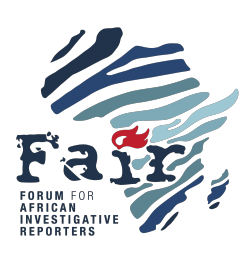GIC & FAIR | 18 June 2014
Apply now for investigative grants on land grabbing in Africa
The Gravitazz Continental Intiative (GCI) and the Forum for African Investigative Reporters (FAIR) are offering fellowships to feature writers across Africa, who wish to undertake an investigation into underreported land transactions.
Journalists/Reporters are invited to propose an investigation into any important yet underreported land transactions affecting communities, referred to as ‘land grabbing’. The successful applicants will receive a stipend of $500 USD over 4 months to cover research expenses for three articles each. The proposed project should expand the knowledge and understanding of the chosen investigative area and its publication or broadcast should stir public debate. Story ideas should profile people, communities, policies, events, or issues that illustrate poor governance around land/water grabs, food security challenges across the African Continent. Stories should focus on the issues at stake for poor land governance in sectors of vital relevance. Proper land deals should be integrated in mainstream media such as coverage of politics and governance, business and economics, budgetary/parliamentary reporting and social affairs.
The journalists will be supported by an advisory team with knowledge in the area of the investigation and scrutiny. The fellow may work in any medium or language but articles may be submitted in English but must be published in any of the African Union Languages. Journalists must have the support of their editors for publishing/broadcasting their stories.
The Award
Each selected journalist receives $US 500 stipend amount for these stories to cover transport and other logistical expenses involved in accessing materials for and publishing the features. Print journalists are expected to produce 1800 words for each story while broadcast produces 1hr weekly discussion programme series.
Selection
Preference is given to journalists who:
- Can apply research-based information to ascertain its effects on local communities
-Craft a concept/proposal listing specific sources of research and development information data from experts and oral testimony from marginalised groups, and how their features will create a platform to relate the two
- propose land grab topics that raise the most pertinent issues in these countries’ development
- provide a plan on how the features will be disseminated as widely as possible
- Strategise on how they will monitor their story contribution to change or impact
How to apply
The completed application package consists of:
- A copy of the CV
- Examples of relevant work previously published or broadcasted (scripts are acceptable)
- A one-page series concept/proposal that articulates the topic, importance, objectives, sources and how the output will be as widely published/broadcast as possible
- A brief letter of understanding from the journalists’ managing editor, communicating their willingness to provide airtime/space to for fellowship content dissemination
- At least one article must have been published by the 29 June 2014.
Send to:
[email protected]
The deadline for application is 24 June 2014
Apply now for investigative grants on land grabbing in Africa
The Gravitazz Continental Intiative (GCI) and the Forum for African Investigative Reporters (FAIR) are offering fellowships to feature writers across Africa, who wish to undertake an investigation into underreported land transactions.
Journalists/Reporters are invited to propose an investigation into any important yet underreported land transactions affecting communities, referred to as ‘land grabbing’. The successful applicants will receive a stipend of $500 USD over 4 months to cover research expenses for three articles each. The proposed project should expand the knowledge and understanding of the chosen investigative area and its publication or broadcast should stir public debate. Story ideas should profile people, communities, policies, events, or issues that illustrate poor governance around land/water grabs, food security challenges across the African Continent. Stories should focus on the issues at stake for poor land governance in sectors of vital relevance. Proper land deals should be integrated in mainstream media such as coverage of politics and governance, business and economics, budgetary/parliamentary reporting and social affairs.
The journalists will be supported by an advisory team with knowledge in the area of the investigation and scrutiny. The fellow may work in any medium or language but articles may be submitted in English but must be published in any of the African Union Languages. Journalists must have the support of their editors for publishing/broadcasting their stories.
The Award
Each selected journalist receives $US 500 stipend amount for these stories to cover transport and other logistical expenses involved in accessing materials for and publishing the features. Print journalists are expected to produce 1800 words for each story while broadcast produces 1hr weekly discussion programme series.
Selection
Preference is given to journalists who:
- Can apply research-based information to ascertain its effects on local communities
-Craft a concept/proposal listing specific sources of research and development information data from experts and oral testimony from marginalised groups, and how their features will create a platform to relate the two
- propose land grab topics that raise the most pertinent issues in these countries’ development
- provide a plan on how the features will be disseminated as widely as possible
- Strategise on how they will monitor their story contribution to change or impact
How to apply
The completed application package consists of:
- A copy of the CV
- Examples of relevant work previously published or broadcasted (scripts are acceptable)
- A one-page series concept/proposal that articulates the topic, importance, objectives, sources and how the output will be as widely published/broadcast as possible
- A brief letter of understanding from the journalists’ managing editor, communicating their willingness to provide airtime/space to for fellowship content dissemination
- At least one article must have been published by the 29 June 2014.
Send to:
[email protected]
The deadline for application is 24 June 2014













